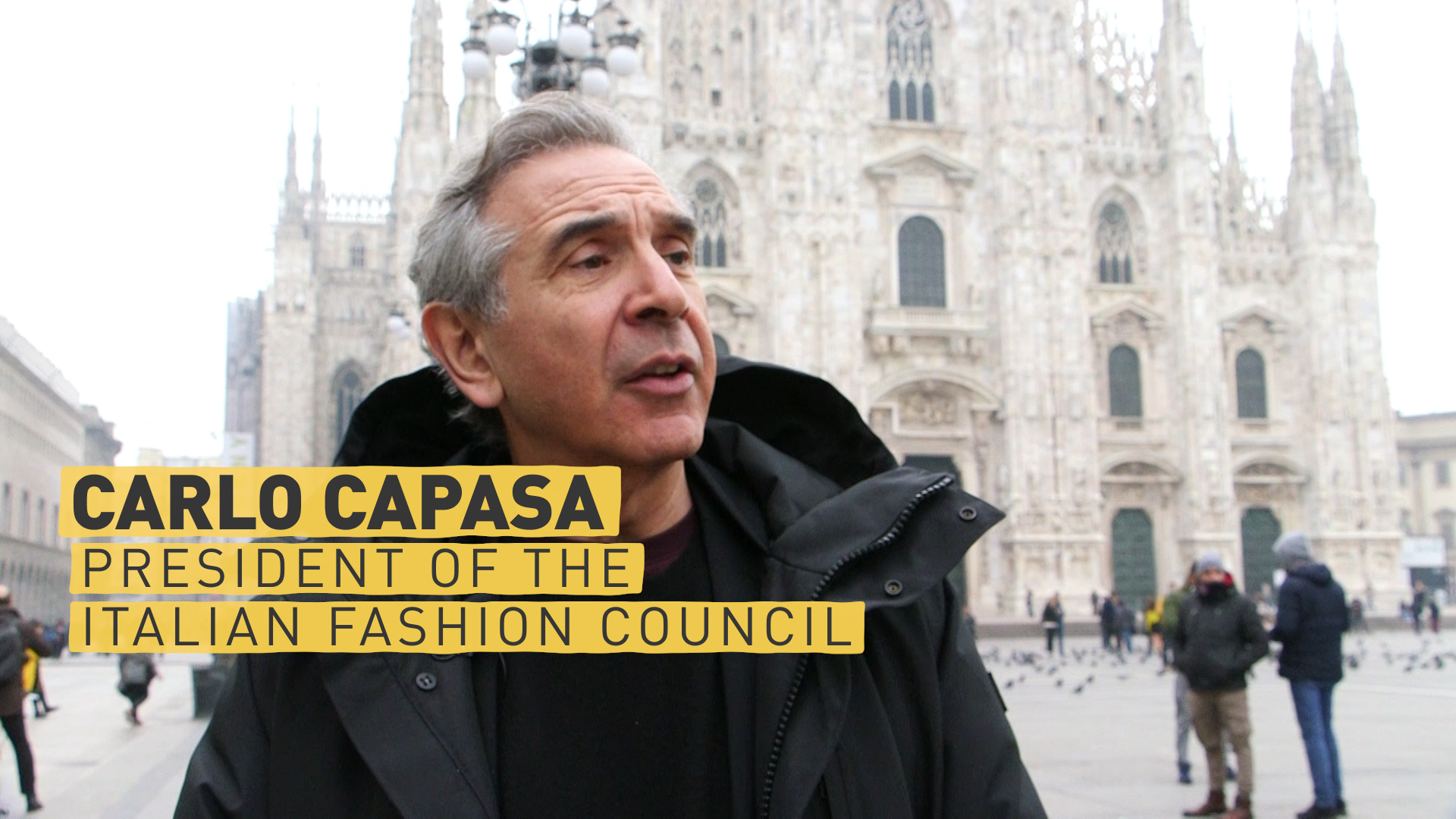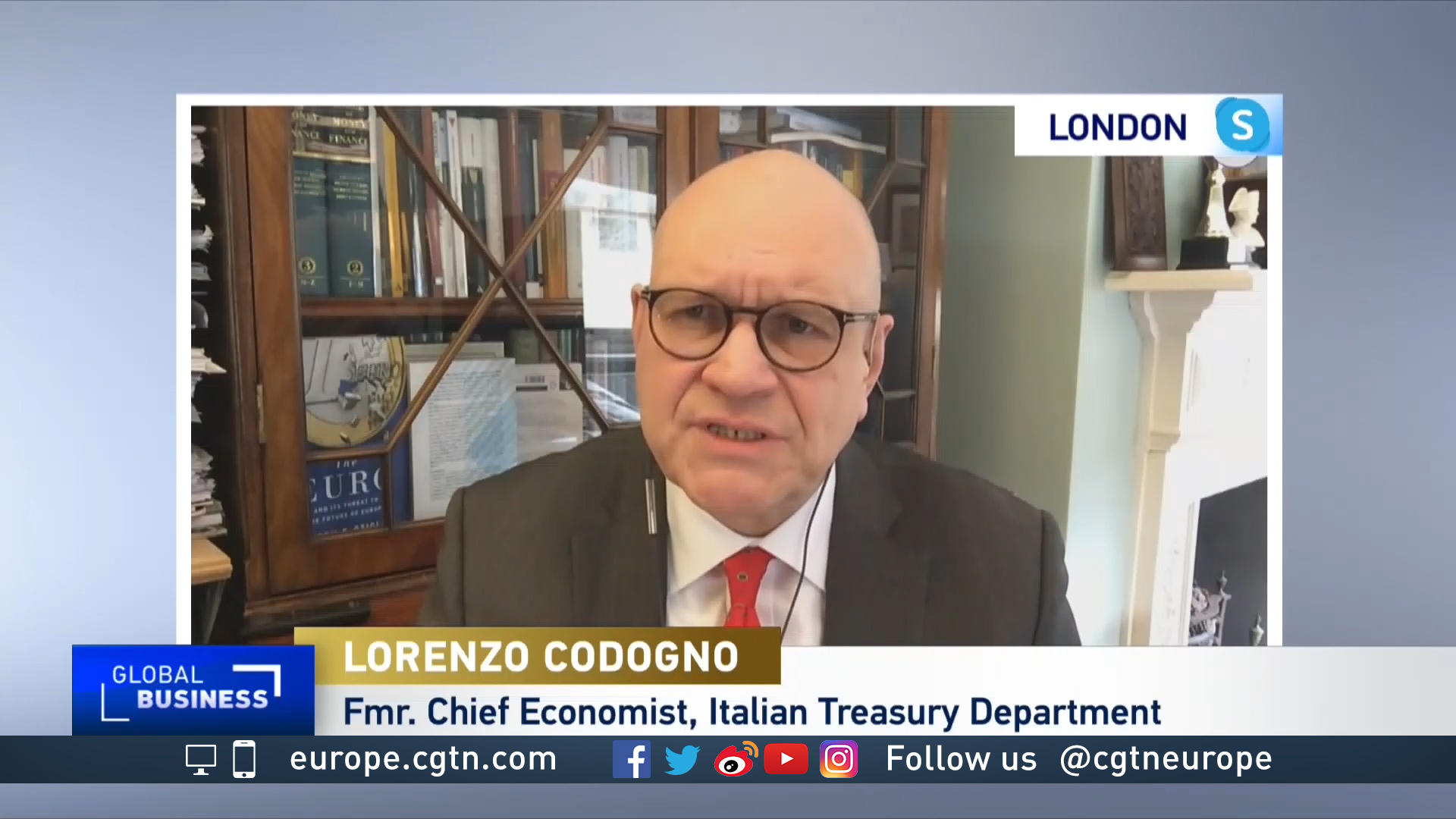02:57

Marco Bettin is the chief operating officer of the Italy China Foundation, a non-profit organization supporting bilateral cooperation between the two countries.
For him, the rapid spread of COVID-19 feels personal. He spent 20 years of his life in China, including the years during the SARS outbreak of 2002-03. He's now living through another epidemic, this time in his home in Milan.
"If you look around, you don't see too many masks. But, of course, I didn't take the subway – and look at the line of taxis. Usually there are not so many taxis. So, I do believe there are fewer people throughout the city and this is something, I can feel it," Bettin says of Milan in these days of fear over contagion.
As of Wednesday morning, Italy had announced 374 confirmed cases of COVID-19 and 12 deaths – all since last Friday.
More than 200 of those confirmed cases are in the region of Lombardy, with Tuscany and the island of Sicily announcing their first cases this week.
This rapid surge in numbers has caused the Italian government to implement some rather abrupt emergency precautionary measures in five northern regions, where the majority of cases have been detected, including the complete lockdown of 11 communities.

Marco Bettin's office has been closed as part of precautionary measures against COVID-19. /CGTN
Marco Bettin's office has been closed as part of precautionary measures against COVID-19. /CGTN
CGTN Europe met Bettin in a local park in Milan, because his office has been closed as part of the precautionary measures imposed by the regional government.
"We are a service company, so we can work from home, but production companies can't. Hopefully we will not stay closed too long," he says.
Many of the companies that are part of his network have faced some sort of disruption due to the outbreak, yet Bettin says it is still too early to quantify the economic effects of these measures. And analysts throughout the country agree with him.
What's certain is that some sectors will suffer more than others. The economic exchange between Italy and China runs to about $43 billion, much of which is represented solely by the one-way traffic from China, not only in goods but also in people.
Chinese visitors contributed roughly 26 percent of Italy's annual $46 billion tourism revenue last year, but since the quarantine of 60 million people in China, followed by Italy's suspension of all flights to and from China, that number has dropped, affecting hotels, restaurants and the retail market.
Now, with the closure of many restaurants, shops, tourist attractions and public events due to the spread of the virus in Italy, the services sector is feeling the absence of even more tourists, regardless of their nationality.
02:46

Carlo Capasa is the president of the Italian Fashion Council, the institution behind the organization of Milan Fashion Week.
CGTN Europe met him at a popular Milan plaza. He had closed his office that day to adopt the "work smart" policy, whereby employees are told to work from home.
Thousands of companies across northern Italy have also implemented this. Capasa says roughly 30 percent of Italy's $97 billion annual turnover of luxury fashion comes from Chinese consumption.
"The effect [of COVID-19] is quite strong," he says. "In China, for many days most of the department stores were deserted, so business has been dropping dramatically. Now we have the same situation here, so we are afraid the retail industry in Italy could also suffer."
The Bank of Italy has estimated a loss of 0.2 percent of GDP growth due to COVID-19, but analysts don't yet foresee the impact affecting Italy's ability to pay off its large public debt.
Italy's northern regions – currently the most affected – are among the richest, the most dynamic and the most export-intensive in the country, therefore the most resilient to any economic hit.
"Milan is Italy's economic business engine," says Bettin, "one of the most important for Europe, so we are talking about a very big part of Italy's GDP and a very important part of the international business so I hope we can control the spread of the disease."
Bettin admits that many companies relying on Chinese supply chains were already prepared with extra stock due to the Chinese New Year, but now that stock has run out.
"It's only now that we are starting to experience problems. It is unpredictable. It is not very clear how long this will go on. So it is very hard to say now how badly the virus will affect us, because even though it started one-and-a-half months ago, the situation is still ongoing."